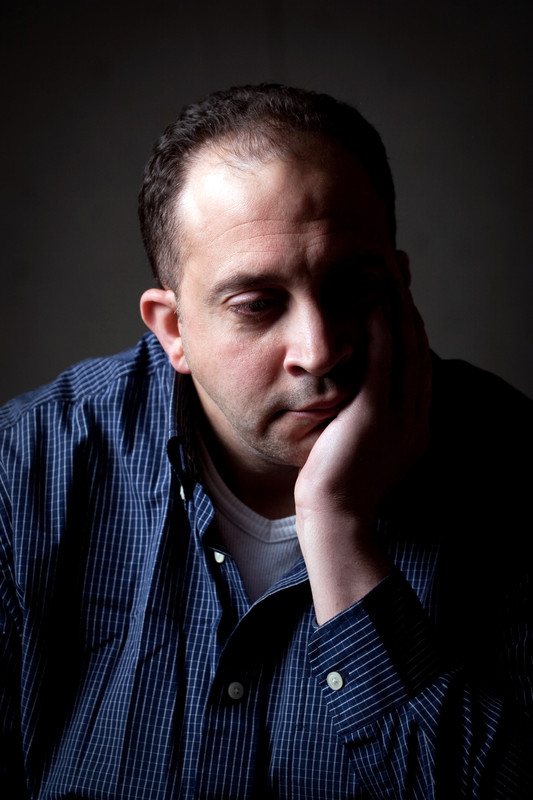Counselling Approach
A Collaborative Approach to Therapy
My Philosophy on Healing
Therapy Techniques for Individual Therapy
Approach to Couples Counselling and Relationship Therapy
Our work together in therapy is a process whereby we work together as a team. I have faith in your capacity and competence to heal and create the life you want.
I consider you to be the expert on you, your life and what you want. Of course, you will need to take the necessary actions to achieve your goals. My role as a therapist is to bring all my experience and knowledge to support, guide, and empower you in the process. I can help you heal from past wounds, become stronger, wiser and happier and create the life enhancing changes you desire.
My Philosophy on Healing
Early traumas cause ruptures in attachment.
I believe we can heal ourselves and our relationships regardless of the past. Attachment theory shows how early in life our caregivers or others failed to really see, feel and nurture our authentic selves in ways that we needed. We often failed to get our needs met for love, self esteem, respect, consideration, safety, and appreciation early in our life.
There may have been physical, emotional, sexual and or mental trauma for which we have memory of or not. This can result in parts of the self splitting off and becoming fragmented. These traumatized parts of ourselves can show up and cause difficulties in our lives like when we are mistrustful, self destructive, terrified, controlling and needy. Any trauma can result in feelings of low self worth, insecurity, anxiety, depression and poor coping strategies such as drinking, drugs, overeating, over-focusing on others at the expense of ourselves etc.. In addition, most mental difficulties stem from problems in our early attachment relationships with our caregivers which resulted in difficulties in brain development.

Therapy helps heal the past and rewire our brains.
The key to living happily today is learning to get our needs met now. Through therapy, we can work together to identify your needs and teach you skills to get these needs met. Our therapy relationship can be said to be reparative in the sense that we can work together to help you overcome the wounds from past relationships.
Research has proven that healthy caring in respectful and compassionate relationships can grow new neurons in the brain so that you can feel a stronger sense of self-worth and strength in yourself. Our counselling relationship will be a safe place for you to transform your old painful experiences into more positive ones so that you can heal.
I am committed to helping you heal.
As your therapist, I am dedicated to helping you reach your highest potential in all areas of your life. My hope and optimism for your growth can help you change and grow. With my patience, compassion, understanding and skill your feelings can be expressed and your story respectfully witnessed as your change is supported. Through our therapy, you can heal and overcome addictions, resolve trauma and learn tools to guide you in your life. I am totally committed to doing everything in my power to help you heal. I am certain I can help you achieve the life that you desire and deserve.
“Whatever you can do, or dream you can, begin it. Boldness has genius,
power, and magic in it” – Johann Wolfgang von Goeth
Therapy Techniques for Individual Therapy
I use a variety of counseling techniques in my work with trauma and addiction. The goal is to help you resolve emotionally painful experiences and traumas, as well as change the negative thinking and behaviors that block you from feeling confident, empowered and fulfilled in your life. You’ll also learn necessary relationship skills like assertiveness and setting boundaries. Below is a summary of some of the therapies I utilize in my counselling practice.
Cognitive Behavioral Therapy (CBT)
CBT is a short term form of therapy that helps change disturbing thought patterns that have a negative effect on behavior.
“The happiness of your life depends upon the quality of
your thoughts; therefore guard accordingly.” – Marcus Aurelius
Rational Emotive Behavior Therapy (REBT)
Rational Emotive Behavior Therapy is a form of Cognitive Behavior Therapy which is a research based and proven effective approach for the treatment of depression and anxiety and other problems. Our thoughts greatly influence our behavior and emotions. Often times our core beliefs are the results of trauma or negative interactions with others in our past. Unfortunately these “irrational beliefs” perpetuate our unhappiness.
Examples of shame based beliefs that are held unconsciously can be:
- I have to be perfect.
- I am worthless.
- I am not in control.
- I am not good enough.
These beliefs wreck havoc with your emotions causing depression and anxiety, or for you to shut down emotionally.
You may know that you are hard on yourself and not feel good about yourself. We’ll need to work on your self-talk so that you are more rational, kinder and more compassionate with yourself.
REBT also addresses and changes many other irrational thinking patterns. To name a few there are beliefs held that: demand approval from everyone, have unrealistic self expectations, blame others, assume life should be perfect and those that lead to avoiding problems and procrastination.
Rational Emotive Behavioral Therapy empowers you to manage your own emotional problems more effectively and to take control of your own behavior in order to try to obtain more of what you want in life.
I have Certification in Rational Emotive Behavioral Therapy from the Albert Ellis Institute, New York, NY, 2009

Eye Movement Desensitization and Reprocessing Therapy (EMDR)
Video provided by EMDRIA (EMDR International Association).
The new brain science has shown how difficult it is for our brain to process a traumatic or very negative event. This inhibits your ability to recover and over time, symptoms either do not go away or sometimes get worse.
The traumatic or painful incident becomes stuck in your brain and causes you to feel and react in a way that you did when the event first happened. You overreact to current situations because of unresolved past issues: “when you are in a reactive emotional state of any kind it is typically related to past experiences”. You may actually relive the past or experience strong emotions and physical sensations.
Conversely, you may feel numb and shut-down from emotion. Even when you do not have any memory of the event at all, your brain remembers the experience and the event can wreak havoc in your life. I can help you learn to regulate your emotional states and become calmer and more rational.
EMDR can help “unlock” the pathways in the brain and release the trauma.
It can significantly shorten the length of therapy and produces results far beyond the scope of talk therapy alone.
This is because EMDR works on the emotional wounds which are located in a more primitive part of the brain that is not assessable to language.
Eye Movement Desensitization Reprocessing is a phenomenal counselling approach which can be used for resolving trauma, reducing cravings and enhancing strengths.
Where you used to be troubled by nightmares, flashbacks or intrusive memories, EMDR can eliminate these and replace them with feelings of self-confidence and peace. Where you used to feel compelled to use your drug of choice you will be free of thoughts of using substances. Where you used to feel anxiety or depression, you will feel a greater sense of peace and calm. Your traumatic symptoms of intrusive thoughts and nightmares will be gone.
If appropriate, I regularly use EMDR to treat Post Traumatic Stress (PTSD) and the after effects of trauma.
EMDR is a powerful healing method that has, to date, helped an estimated half million people, of all ages, relieve many troublesome symptoms
I am a Level 2 EMDR Approved therapist. Since my original certification, I have continued to upgrade and expand my EMDR skills with additional training.
“A study comparing the effectiveness of Prozac vs. EMDR showed
that EMDR was more successful than Prozac in achieving
substantial and sustained reductions in depression and
Post-traumatic stress disorder (an anxiety disorder).”
– The Journal of Clinical Psychiatry, January 2007
Emotional Freedom Technique (EFT)
Developed by Gary Craig, EFT helps you transform your negative thoughts, experiences, and pain through energy psychology using the body’s electromagnetic meridians. EFT is an emotional version of traditional acupuncture. Instead of using needles, energy meridians are stimulated to heal by tapping. It has been used successfully with chronic pain, relationship issues, weight loss, self defeating thinking and many more negative conditions. I can help you use this technique.
Mindfulness-Based Therapy
Mindfulness is another research-proven tool that is excellent for healing which involves teaching you to be aware of, and accepting of your current experiences with kind curiosity. You can then non-judgmentally observe how your mind creates suffering.
You can learn to create a pause between an internal or external event that triggers a thought and your resulting emotional and behavioral response. Your negative responses might be feeling anxiety or acting out by over-eating or using alcohol and drugs and other harmful coping mechanisms. With the calm pause of mindful awareness you can more easily choose more healthy and helpful responses. You will learn to treat yourself with loving-kindness and be able to soothe and comfort yourself. I can teach you mindfulness meditation that is proven to improve your health and wellbeing.

“The secret of health for both mind and body is to live in the
present moment wisely and earnestly.” – Buddha
Approach to Couples Counselling and Relationship Therapy
As a Licensed Marriage, Family and Child Therapist I have extensive training counselling couples and individuals in relationship skills.
I draw from Attachment and Family Systems Therapy in my couples therapy work. Our relationship patterns with others often stem from our early attachments with our family of origin or other significant care givers. If our caregivers provided psychological safety (love and nurturing) during our times of distress as a child we learned how to integrate our feelings with self worth and trust in others to meet our needs.
If a caregiver was not present for us and our needs were not met we may have learned to have an external locus of control and keep looking to others for love and approval and sense of ourselves. We would have experienced distress at our lack of connection (which children need to survive) causing difficulty self soothing as adults.
When caregivers are unpredictable and unavailable children will intensify their effort to get safety and comfort and security. They do whatever is necessary for that contact like abandon their own needs and try to meet others needs for comfort and learn to care-take others. They can also submit to abuse as victims with shame and get depressed, go into the fight, flight and freeze response or attach and get needy. These early experiences shape our relationships and contribute to forming anxious or avoidant insecure attachments to others later in life.
In these ways you have learned to shut down and give up parts of yourselves causing low self worth, or play roles in relationships like hero, clown, scapegoat, or doormat. Maybe you are angry and controlling, or cannot commit.
You may have also learned to avoid conflict with others or become stuck in patterns of hostility. These unconscious traits were survival coping skills and evolve into patterns in adulthood that sabotage our love relationships.
In therapy you will learn to differentiate your needs and wants from others and learn to communicate them in self-affirming ways, rather than becoming defensive or withdrawing.
In therapy you will learn that you have choices in relationships and will learn to opt for healthier connections, trusting others and yourself more. You will learn that your identity is found in yourself and not in others. You will also develop an internal locus of control with yourself. With good boundaries and self knowledge you can develop the skills necessary for effective relationships.
My training and experience has taught me to value and respect diversity in my clients. This includes age, race, culture, socioeconomic status, gender identity, sexual orientation and preference. I understand and honor my clients’ uniqueness in all ways.
I encourage you to give me a call to start your healing or book a 10 minute free consultation and I look forward to hearing from you: [email protected] or 604.733.7428 in Vancouver, BC.
